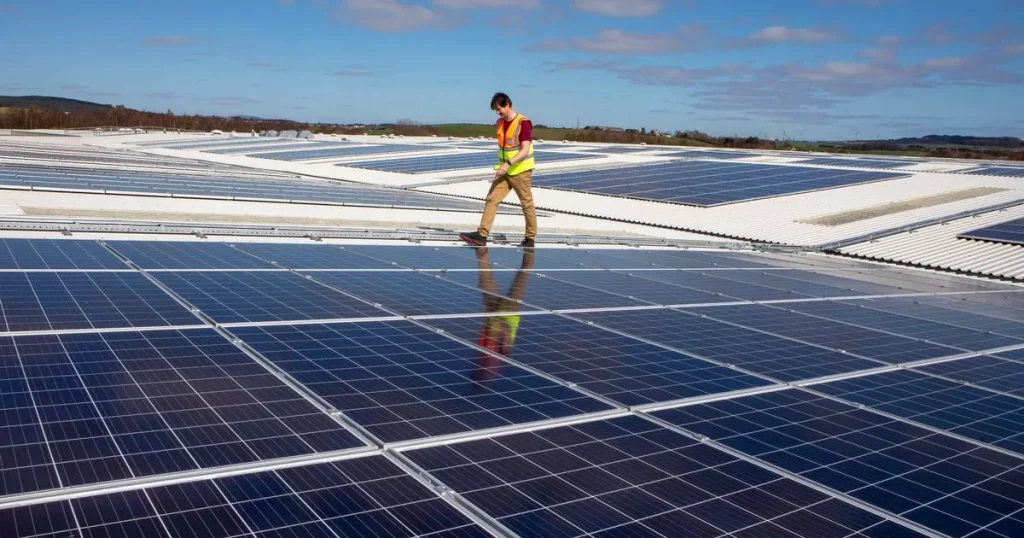Many employees want jobs that don’t negatively impact the environment, with a desire to work in green industries like renewable energy, environmental protection, and sustainable farming. A survey of 2,000 workers revealed that 38% are yearning for careers that have a positive impact on the planet, with younger generations and those aged 45-54 expressing a desire for change. The research, commissioned by OVO, shows that employees are interested in roles like zoology, renewable energy, and environmental science, with aspirations to work in government to influence green policies. The company is upskilling roles to address the green skills gap, offering education and apprenticeship programs to cultivate a greener workforce for the future.
Despite the desire for green careers, many workers find it challenging to search for jobs that positively impact the environment. The average worker believes it would take four years to transition into a greener role, with particular interest in fields like research, sustainability, and practical operations. However, 33% of workers feel they lack sufficient knowledge about their environmental impact, and 66% claim their current job does not provide training opportunities for green skills. The study also found that 51% of workers are more concerned about climate change and sustainability than they were a year ago, indicating a growing awareness of environmental issues among employees.
An Asian Hornet warning has been issued, highlighting the risk to human health and providing guidance on what to do if attacked. Renewable energy is among the top 15 most popular green jobs, with roles in zoology, environmental protection, and sustainable farming also being highly sought after. The top 15 green roles include positions in climate science, environmental law, and green architecture, reflecting the growing interest in environmentally conscious careers. The survey results illustrate a shift in employee preferences towards jobs that contribute positively to the environment and address climate change concerns.
The study reveals that employees are interested in careers that have a positive impact on the environment, with a focus on renewable energy, environmental protection, and sustainable farming. Many workers are eager to transition into green roles but face challenges in finding opportunities that align with their values. Despite the desire for green careers, a lack of knowledge and training in environmental skills hinders their ability to make the transition. The findings also show a growing concern among workers about climate change and sustainability, indicating a shift towards more environmentally conscious career choices.
The research commissioned by OVO highlights the demand for green skilled jobs, particularly among younger generations and those looking to switch careers for a positive impact on the environment. The company is providing upskilling opportunities to help address the green skills gap and cultivate a workforce that is well-equipped to tackle environmental challenges. With a focus on renewable energy, environmental protection, and sustainable farming, employees are showing a keen interest in pursuing roles that contribute to a greener future. The survey findings underscore the importance of supporting and inspiring diverse talent to pursue environmentally conscious careers in order to combat the climate crisis.
In conclusion, the survey of 2,000 employees reveals a strong desire for green careers that have a positive impact on the environment, with a particular interest in roles such as renewable energy, environmental protection, and sustainable farming. Workers across different age groups are looking to switch careers for a more environmentally conscious future, with aspirations to influence green policies in government. However, challenges in finding green job opportunities and a lack of training in environmental skills are barriers to making the transition. The findings highlight the importance of upskilling programs and education initiatives to cultivate a greener workforce and address the growing demand for environmentally conscious careers.


